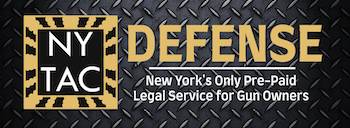Representation.
Youthful Offender and Juvenile Offender Cases
In New York criminal courts as opposed to family court there are two main categories of child criminal defendants, juvenile offenders and youthful offenders. Generally speaking, children who are less than 16 years old are not criminally punished or arrested in New York, however, when the crime is severe enough the New York Penal Law provides for the prosecution of 13, 14, and 15 year old children as juvenile offenders. The type of crimes permitting the prosecution of 13, 14, and 15 years-old juvenile offenders include second degree murder, kidnapping, burglary, criminal sexual acts, and arson. New York Penal Law 70.05 lists sentences that may be imposed on juvenile offenders, sorted by severity of the felony. The sentences are shorter than those imposed on adults who have committed the same crimes.
If your child has been accused of a crime please call our experienced criminal defense lawyers now. Our lawyers can present the best possible case to give your child a second chance. Call our office today for a free consultation.
Alternatively, a court can punish a child as a youthful offender. Youthful offenders’ punishments are controlled by Penal Law 60.02. Many defendants arrested by the police are between 16 and 19 years old. These young people may be qualified to be considered youthful offenders. Generally, child defendants move for a determination as to youthful offender status. Once a court is asked for a determination as to youthful offender status, it must articulate its answer and explain how it came to it.
The legal meaning of “youth” is a young person that has received criminal charges between 16 and 19 years old or a person who has already been determined to be a juvenile offender. All youths are eligible for youthful offender status except for:
- those convicted of class A-I or A-II felonies, robbery with a weapon, rape or criminal sexual act both in the first degree, or aggravated sexual abuse.
- The child was found guilty of a felony and been sentenced.
- The child was previously found to be a youthful offender after being found guilty of a felony or was a found to be a felonious juvenile delinquent.
New York Criminal Procedure Law 720.20 proscribes the criteria that are taken into consideration when determining if a child is a youthful offender. If, in the eyes of the court, justice finds an interest in preventing the imposition of a criminal record or a prison term with the maximum of 4 years on the child, the court has the discretion to find that the child is youthful offender. A child has a right to youthful offender status where the conviction is in local criminal court, the defendant has not been convicted of a crime before or been determined to be a youthful offender before. If a child is found to be a youthful offender, the prosecution cannot appeal that determination.
If a court determines that a child is a youthful offender their sentencing scheme is controlled by New York Penal Law 60.02. Therefore, if a youthful offender is convicted of a felony, any felony, the court must impose a class E felony sentence of up to a maximum of 4 years in prison. Despite multiple offenses, courts have held that requiring youthful offenders to serve consecutive sentences beyond 4 years is not lawful. For misdemeanor crimes and violations, judges impose the same punishments as adults would serve. Also, youthful offenders who are charged with misdemeanors, who have never been convicted of a crime before may only serve a maximum penalty of six months for a misdemeanor, rather than the full year.
Youthful offender status is not in fact considered to be a conviction of anything and therefore it cannot be re-purposed for the prosecution to later impose predicate crime liability on a person for their acts as a youth. Youthful offenders are not required to pay fees for being sex offenders, pay fees to be entered into a DNA databank, and are exempt from other sex offender victim fees.
If your child has been accused of a crime please call our experienced youthful offender attorneys now. Our attorneys can present the best possible case to give your child a second chance through youthful offender status. Call our office today for a free consultation.

















